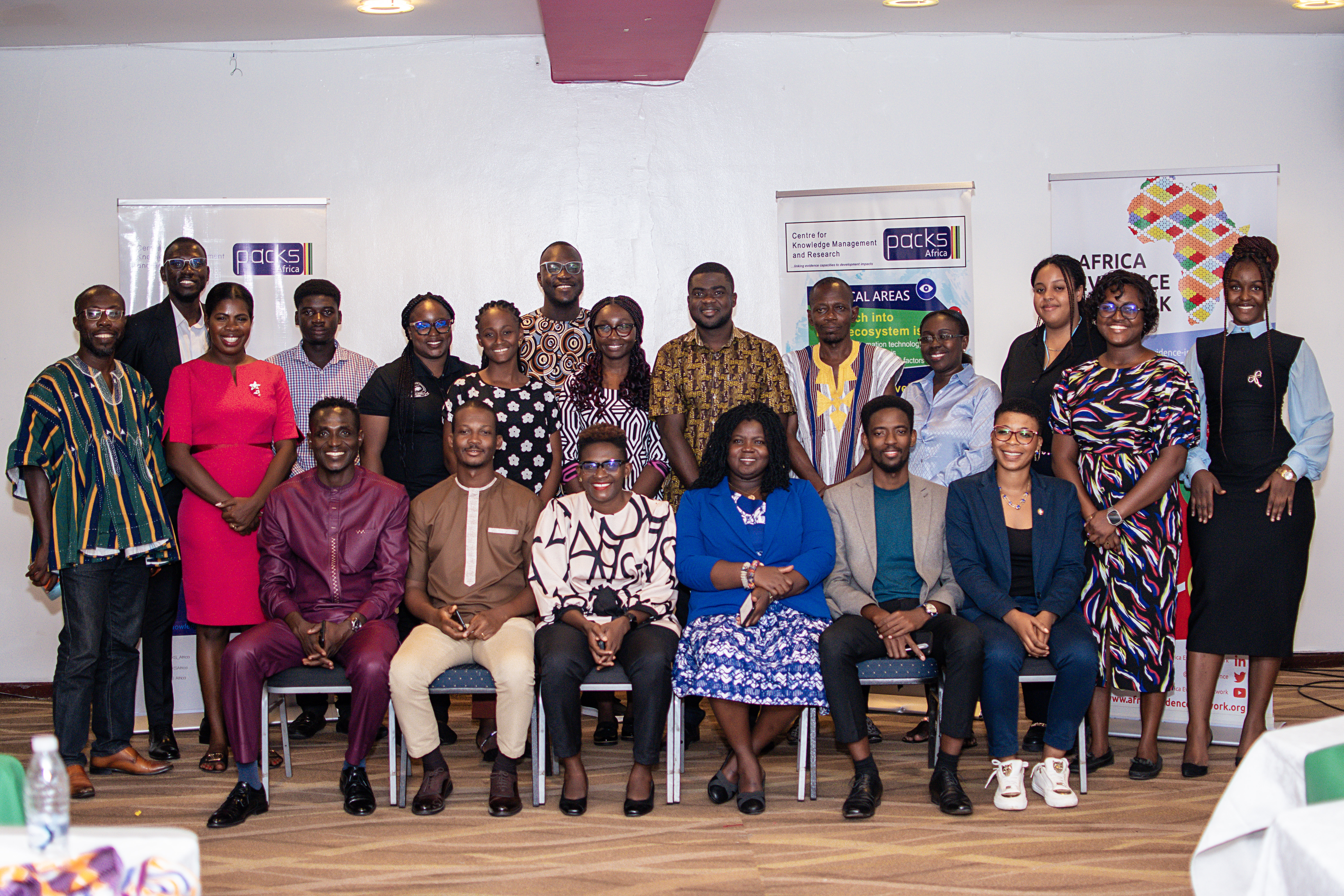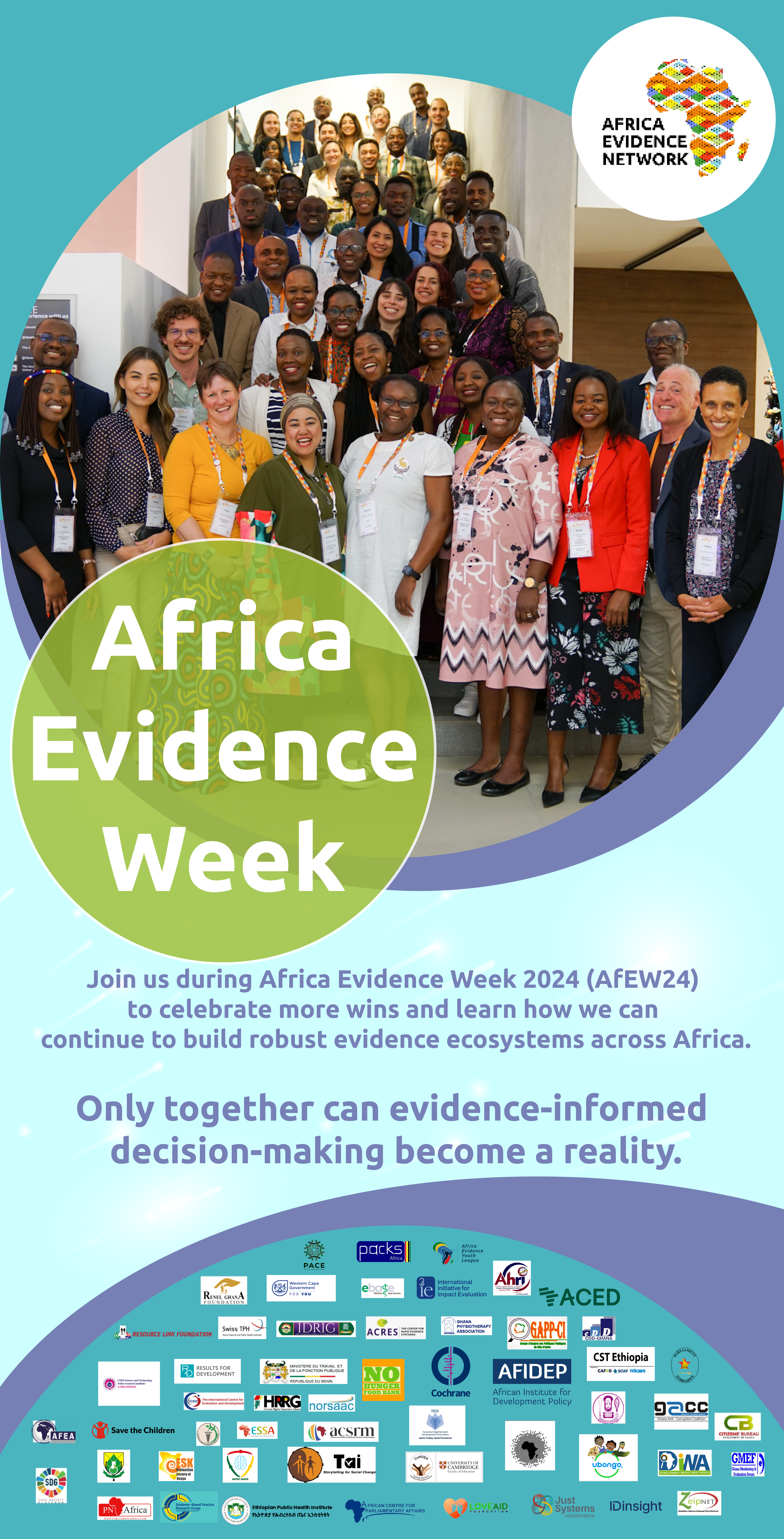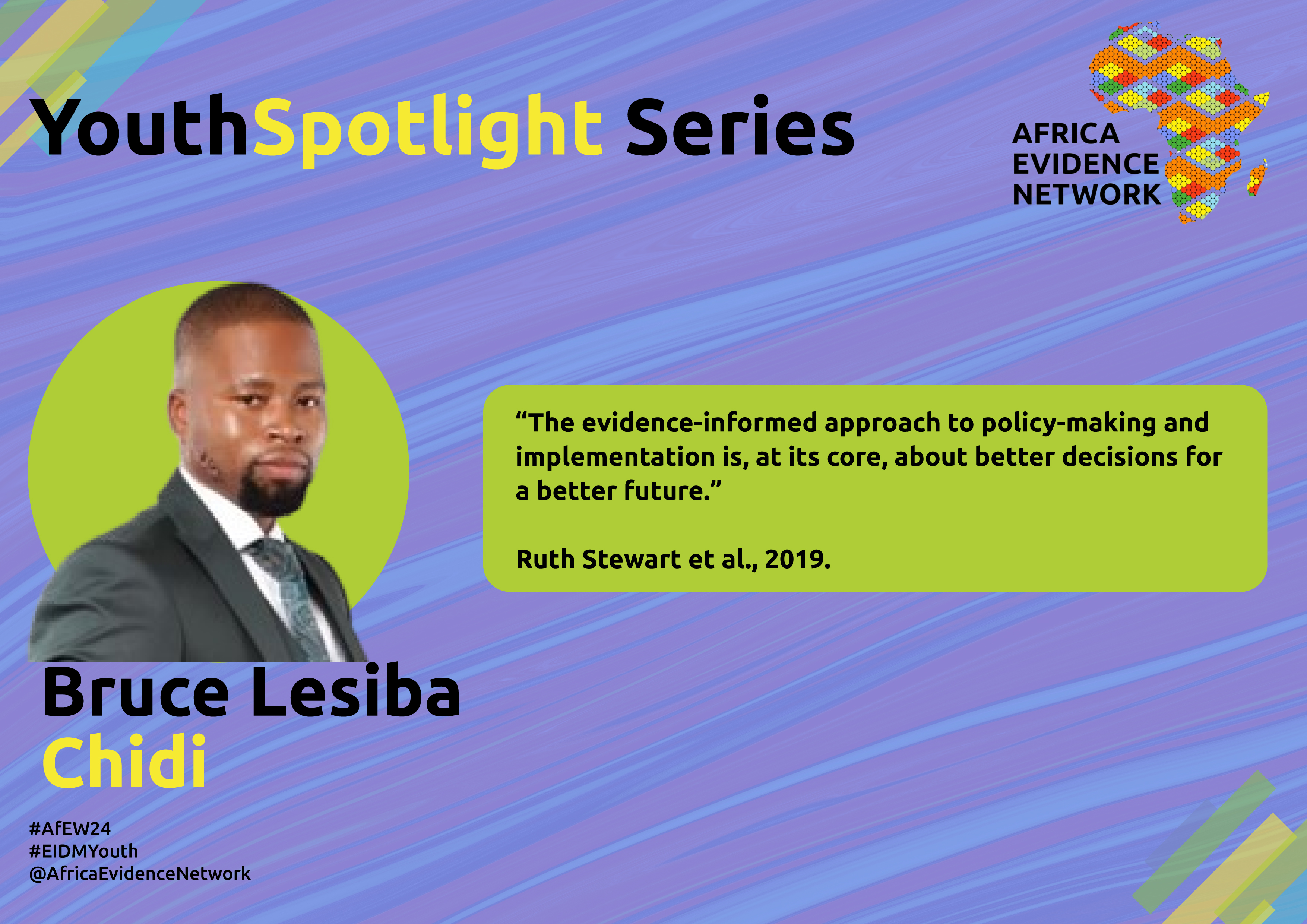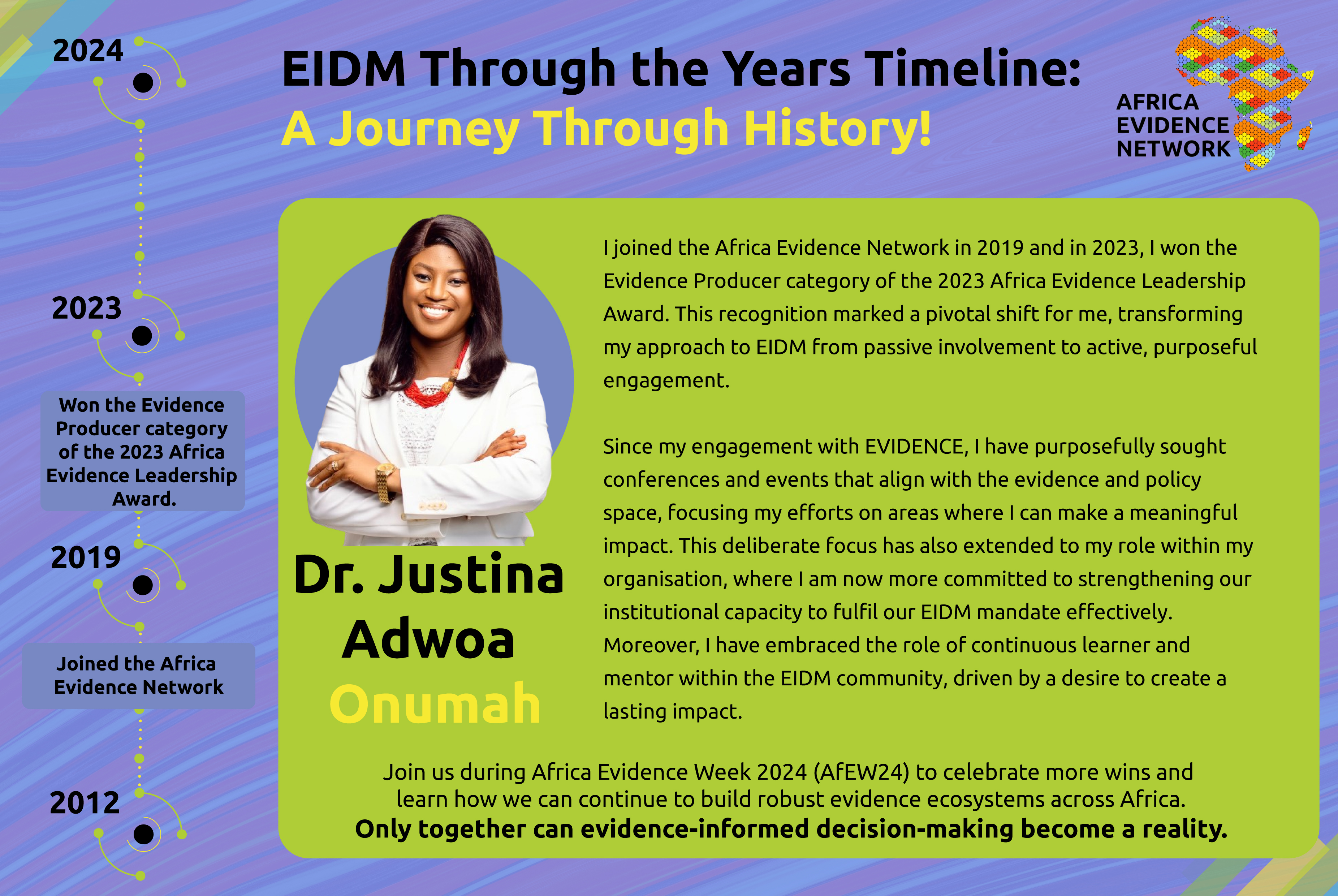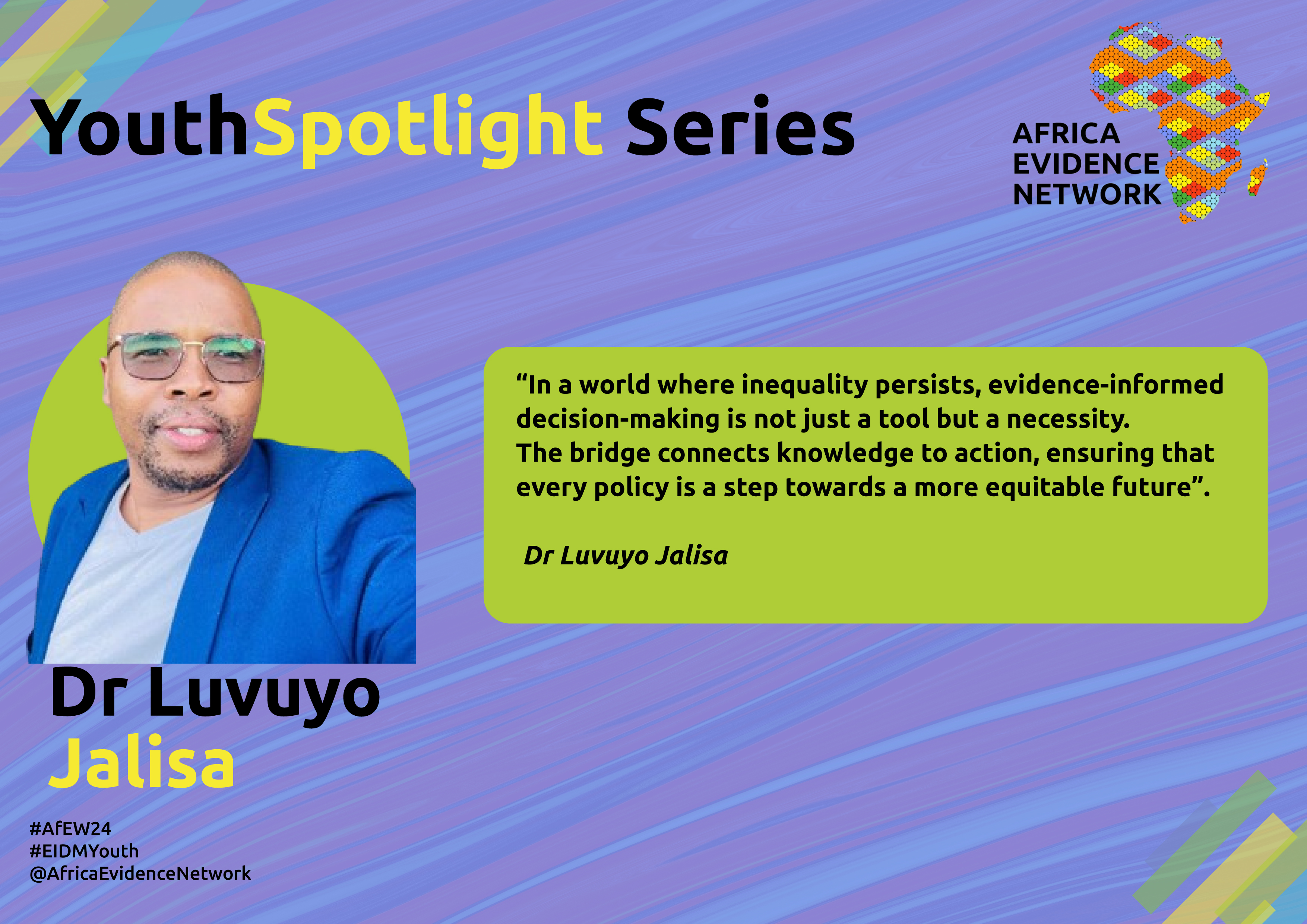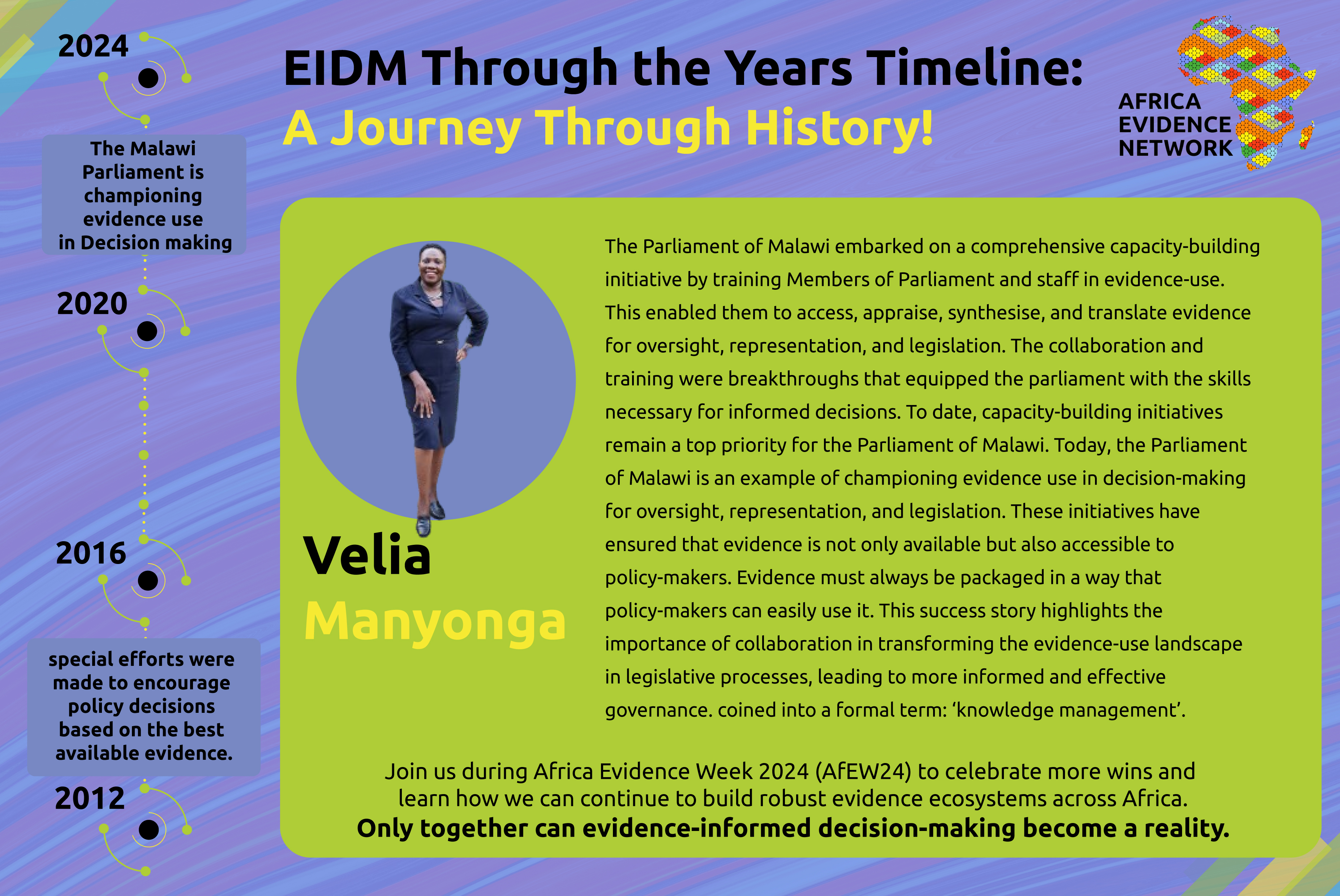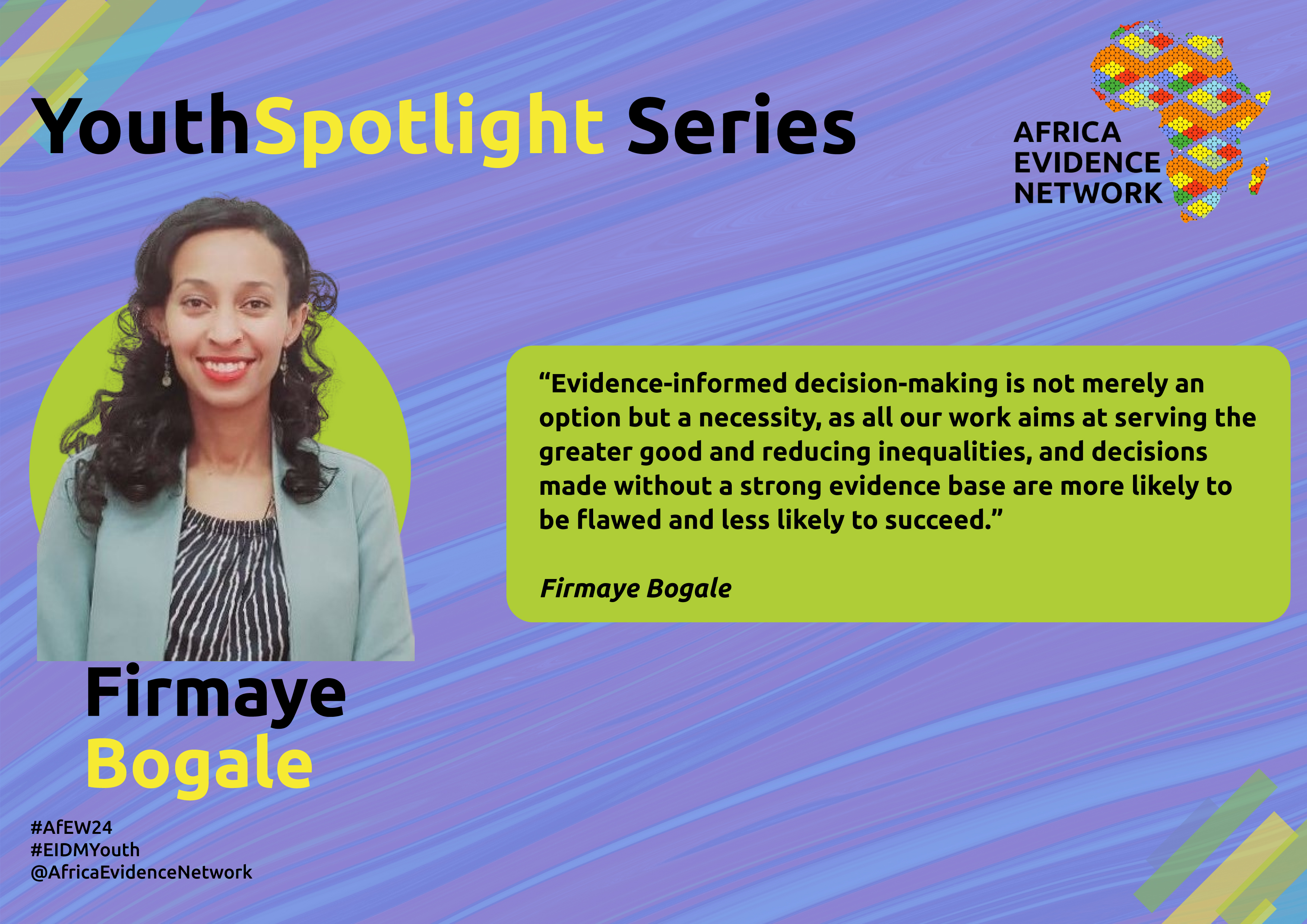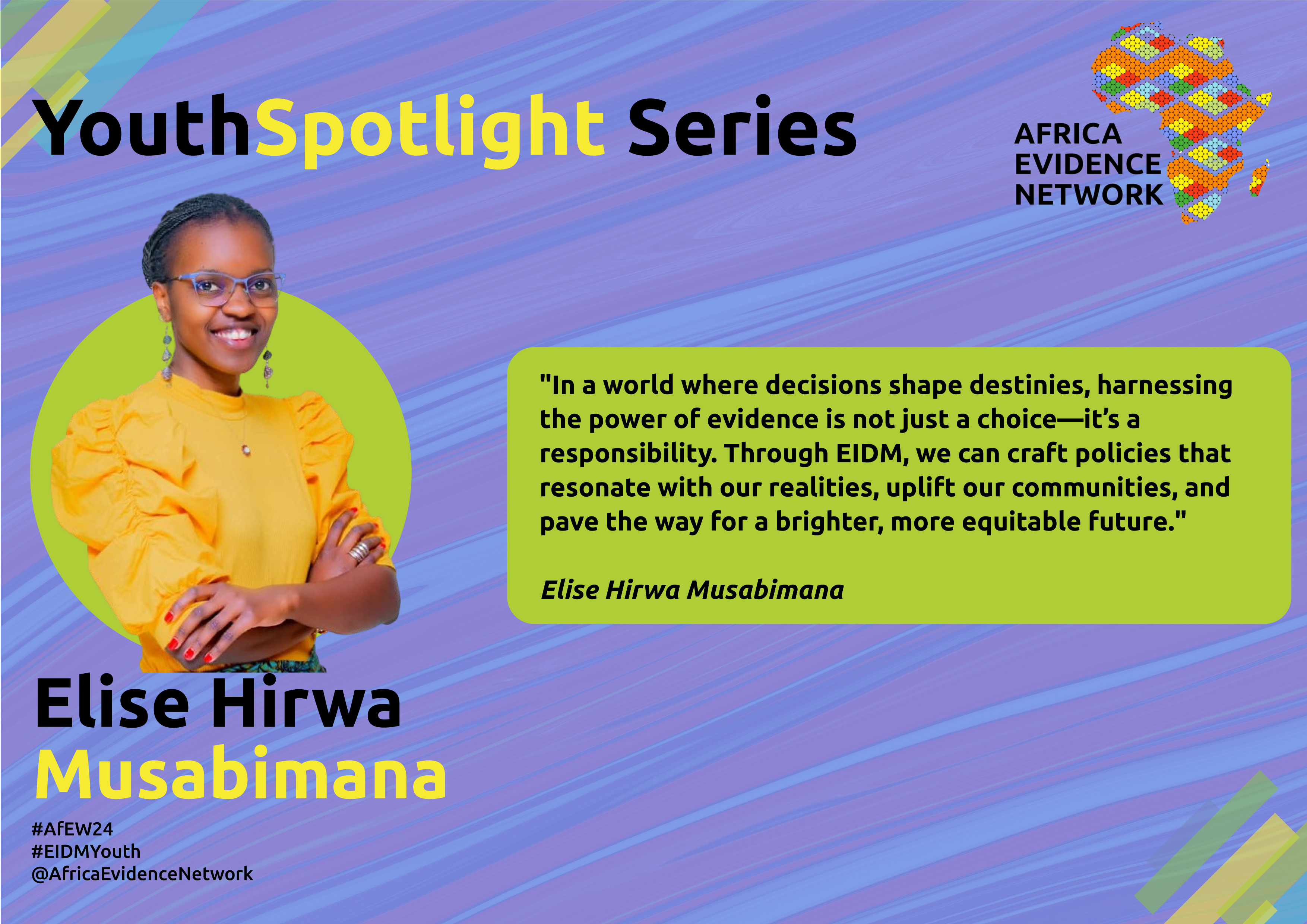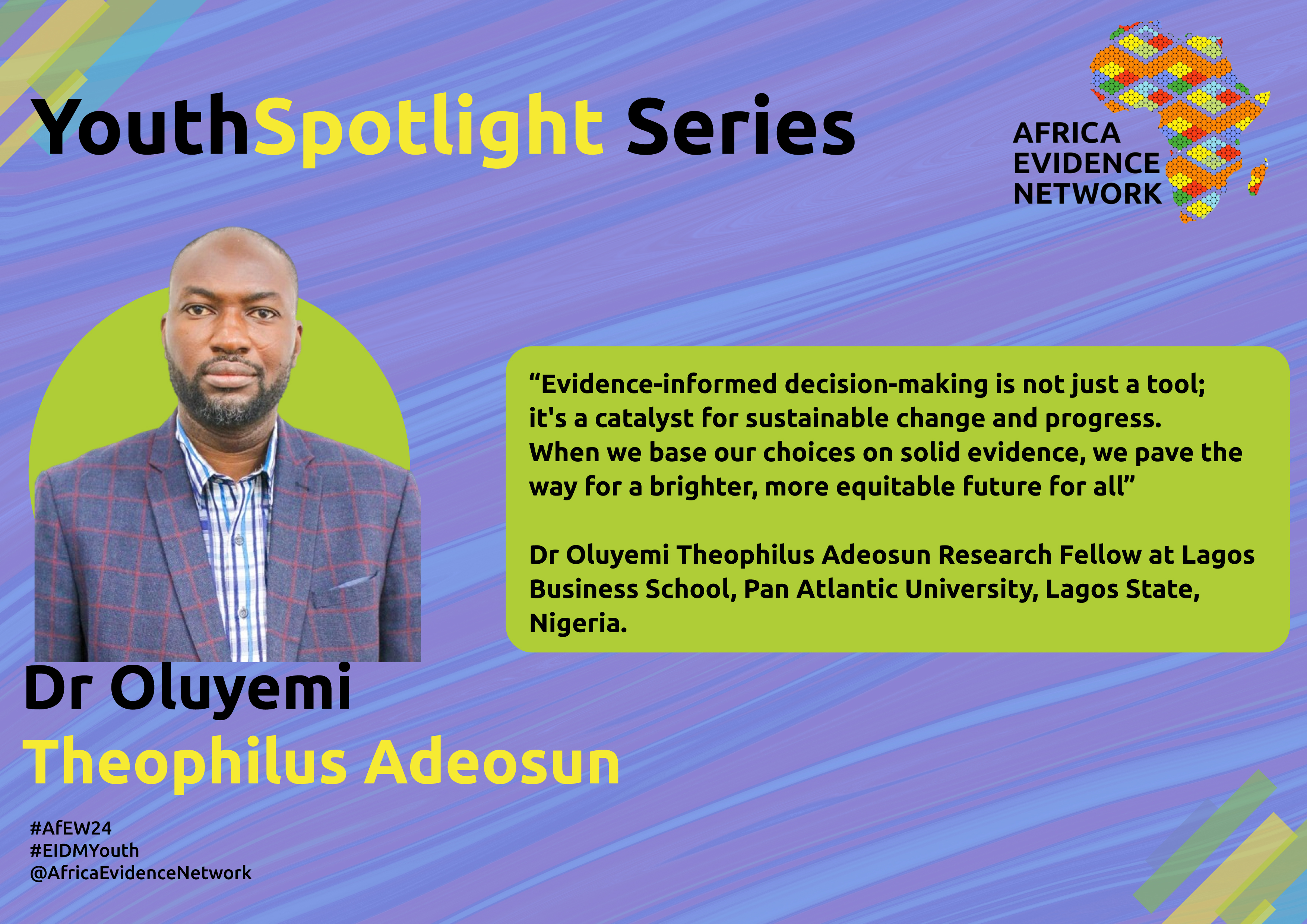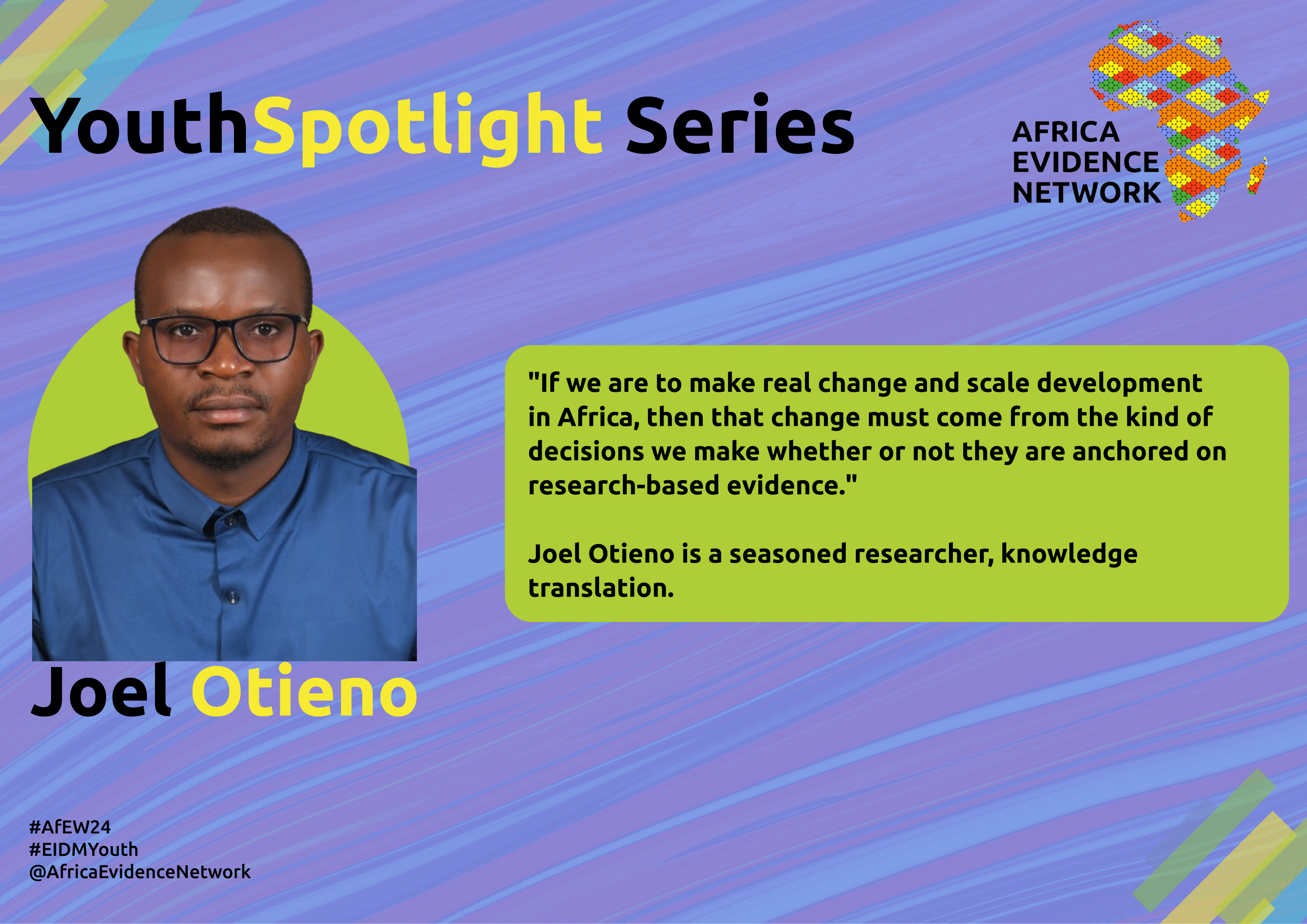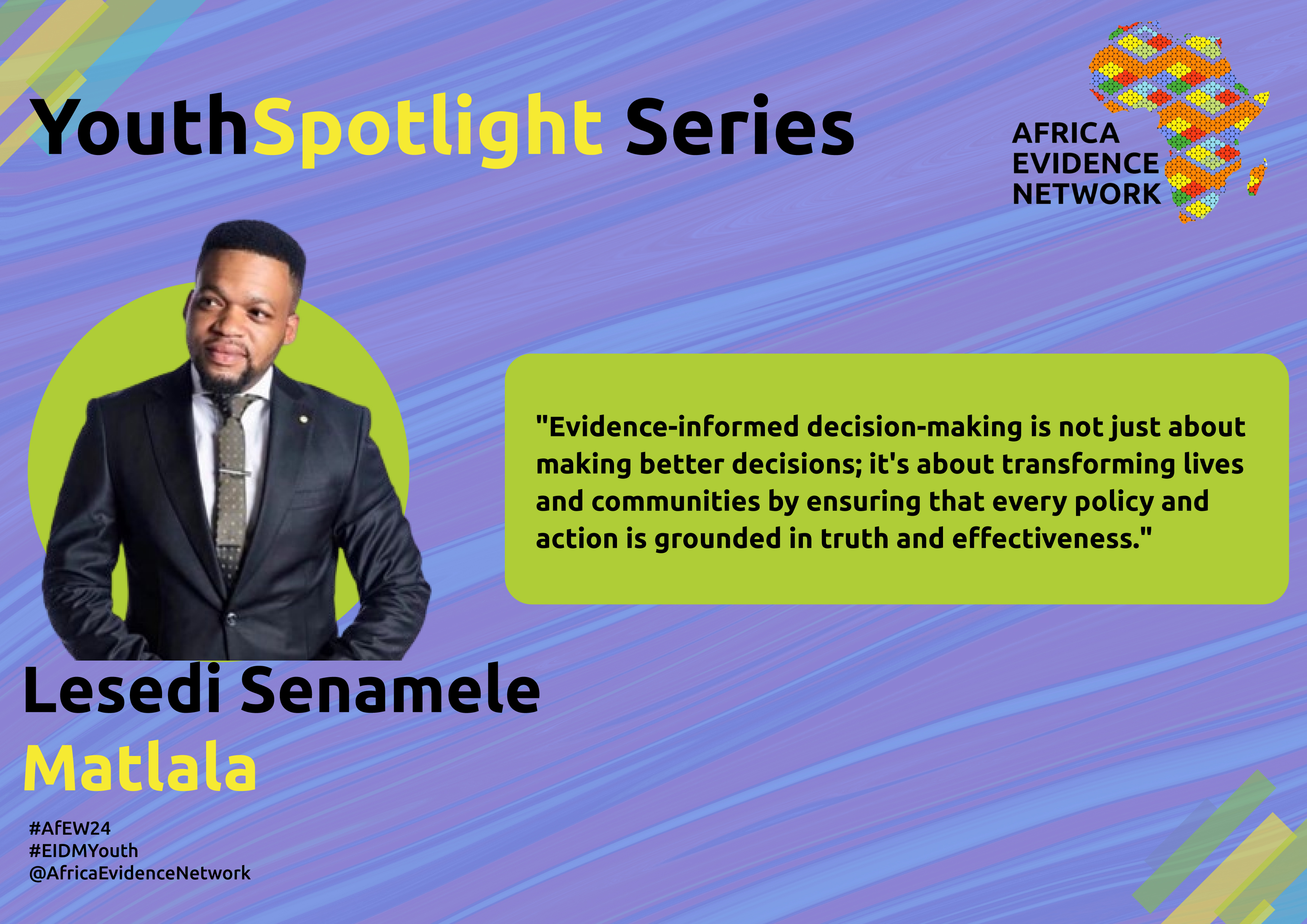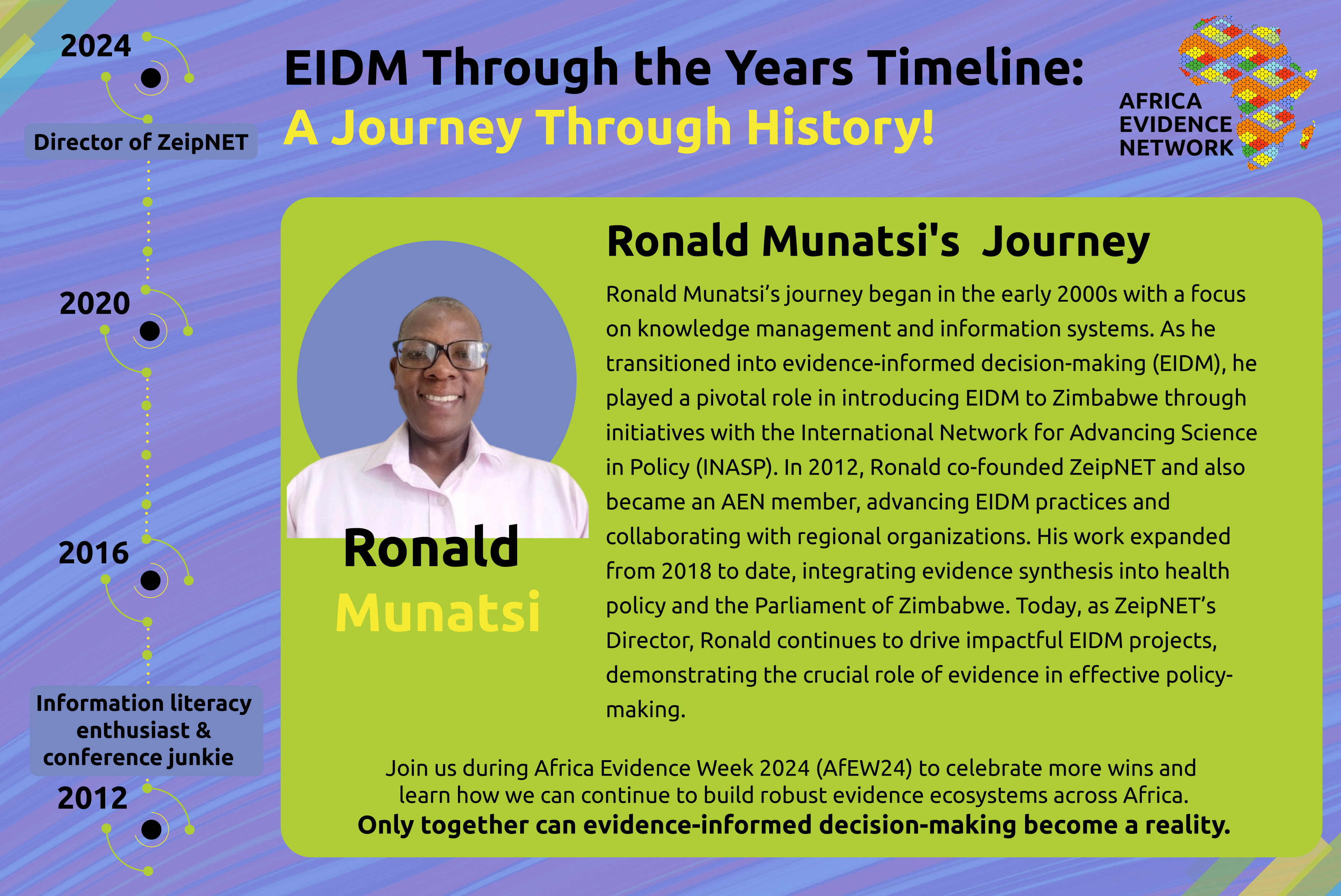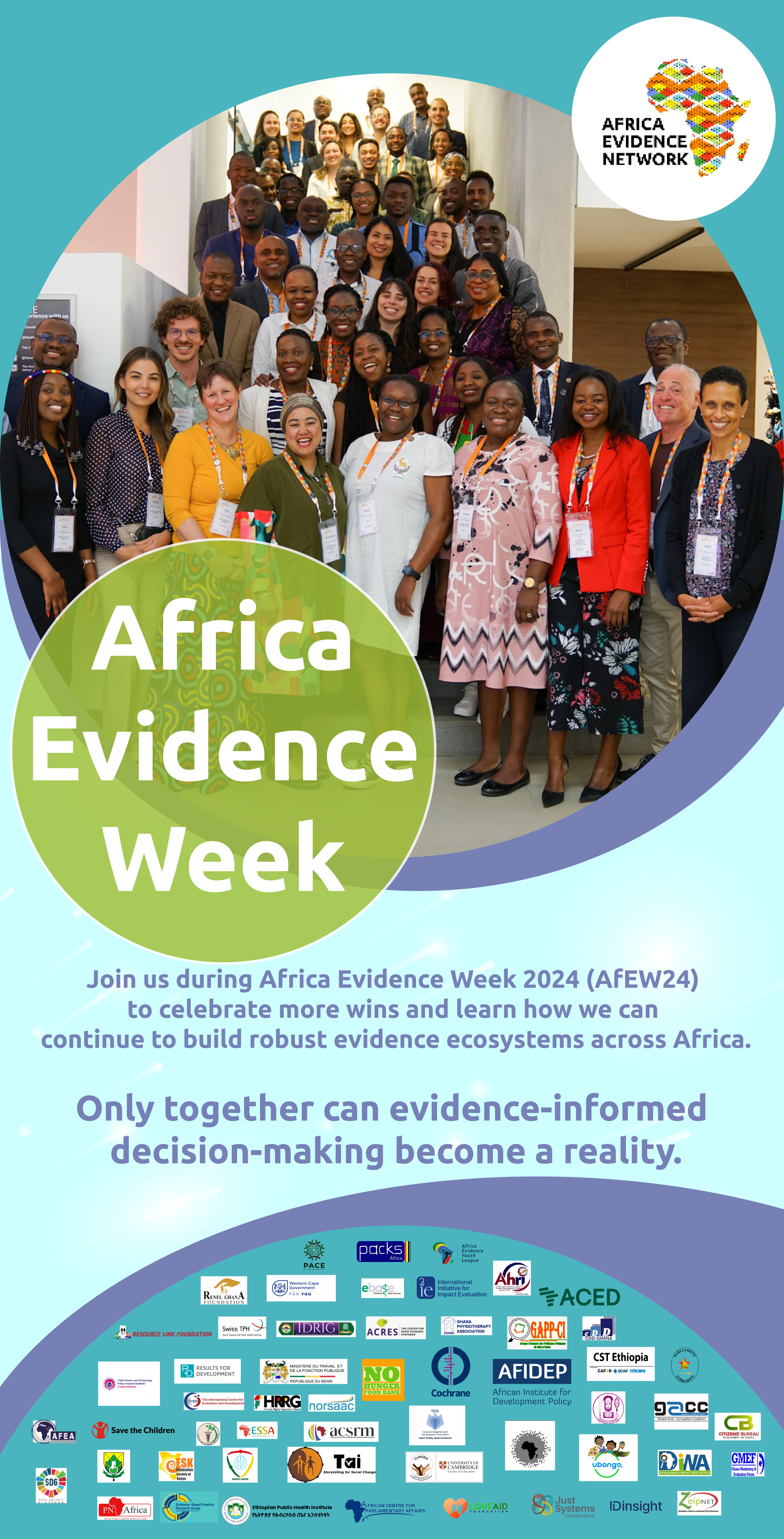
I am in awe of the members’ commitment to and enthusiasm for evidence-informed decision-making (EIDM) as I reflect on day one of the third edition of Africa Evidence Week and the twelve-year celebration of the Africa Evidence Network (AEN). The celebrations during the Africa Evidence Week are tremendous for me and my co-workers. Today is a testament to EIDM expertise is abundant throughout the continent. We are grateful to all the organisations and individuals participating in our fully virtual event; you are all responsible for today’s fantastic success! We are carrying on these discussions tomorrow until Friday, the 23rd of August. I urge you to participate in the upcoming discussions as we continue to celebrate.
This year’s objective is to showcase and promote the state of evidence-informed decision-making (EIDM) on the continent, specifically highlighting the contribution of young and emerging leaders in African EIDM. This virtual week-long celebration of African EIDM and the decision-makers who make it possible will be a fully virtual collection of shared digital content across Africa. The event started on the 19th of August and is ending on the 23rd of August 2024. The programme for the week consisted of over 90 activities, including live online events, live in-person events, Twitter (X) chats, blog posts, EIDM Stories of change, video content such as interviews or documentaries and publications such as research reports, toolkits, guidelines, etc., arranged by over 50 organisations from over 14 African countries.
The day started with a message from the Africa Evidence Network (AEN) director and co-chair. She shared three core things: 1) Reaching up toward our greater purpose to grow the community/ecosystem not for this generation but the new and yet unborn generations, 2) Reaching in to be one with our communities/ecosystem by doing an introspection and say what can contribute and share for changing lives and communities using Evidence? What is my role? 3) Reaching out to promote EIDM. Make an effort to do something for other people and support connections and collaborations for meaningful African and global impact through evidence networks by promoting evidence production, use, and mediation for useful change. The African proverb: "a child who is not embraced by the village will burn it down to feel its warmth”, reminds us of the importance of togetherness and connectedness, which shows our commitment to building innovative, collaborative solutions to ensure EIDM become a reality.
Day one’s programme was packed with various activities, including six Twitter chats, six videos, two blog posts, two publications, an EIDM story and a pre-recorded webinar. In the next few days, the Africa Evidence Network (AEN) will use a Twitter thread to spotlight amazing organisations and participants from across the continent showcasing their innovative approaches to EIDM. Andile Madonsela welcomed participants to the AEN Innovations Series.
Five innovations were showcased in a Twitter chat:
- EIDM INNOVATION IN AFRICA #1 | Youth-led EIDM capacity development | Videos | Africa Evidence Network was on the corporate Evidence Leader Mentorship Programme by PACKS Africa, which was launched in 2021 to address the gap in EIDM skills amongst young people.
- EIDM INNOVATION IN AFRICA #2 | Utafiti Sera: Influencing Policy, practice and decision making through Evidence in Africa | Videos | Africa Evidence Network. Utafiti Sera is a unique and innovative approach to bridging the gap between research evidence in policymaking and anchoring EIDM work in Africa, designed by the Partnership for African Social and Governance Research (PASGR). Utafiti Sera uses the concept of a ‘house’ as the platform where both research and policy communities come together to discuss, access, and appraise evidence to address specific policy issues of national concern.
- EIDM INNOVATION IN AFRICA #3 | Rapid Response Services for EIDM | Videos | Africa Evidence Network. The Rapid Response Service (RRS) at the Center for Rapid Evidence Synthesis (ACRES) is a knowledge translation mechanism that responds to policymakers’ needs for relevant and timely evidence in urgent situations or crises, whether real or perceived, usually within 28 days.
- EIDM INNOVATION IN AFRICA #4 | Building an evidence-driven culture with government partners in Africa | Videos | Africa Evidence Network. IDnsight’s embedded learning partnerships provide timely, flexible, and responsive support to government leaders by answering important, urgent questions and helping to build a culture of a system for data and evidence use.
- EIDM INNOVATION IN AFRICA #5 | Localised meanings of evidence | Videos | Africa Evidence Network. This innovation features a panel discussion that addresses the limited representation of science within the UN General Assembly and aims to inspire procedural changes at the international level.
PACKS Africa hosted the sixth Twitter chat: Social Media storm & updates on opening TikTok video challenge. A digital engagement for the celebration was mainly coordinated through these storms and took place via X (formerly Twitter), Facebook and TikTok. This allowed interested audiences to participate in the celebration digitally.
We showcased six videos. The first one was the welcome message, then the other five discussed diverse topics in EIDM:
- Firmaye Bogale from Ethiopian Public Health Institute, who is the inaugural winner of the Africa Evidence Leadership Award Emerging Leader Under 35 category, shared her expectations for Africa Evidence Week in this video,
- The African Institute for Development Policy (AFIDEP) recorded an interview with Violet Murunga, one of their staff members who is currently the recipient of the Africa Evidence Leadership Award 2024 in the Evidence Producer category offered by the Africa Evidence Network,
- The video by Hector Motlatsi Moloko, a business analyst at the Pan-African Collective for Evidence (PACE), provided an introduction to the REAP online platform,
- A video by Gloria Anderson, a programme officer at the Africa Evidence Network, shared the benefits of using the REAP platform,
- Cochrane introduced us to its new scientific strategy 2025-2030, Cochrane Africa, Cochrane Nigeria. Cochrane is a global collaboration of researchers, health professionals, students, and consumers that strives to improve health outcomes for everyone, everywhere. They produce evidence addressing worldwide health challenges, convening communities and partners to innovate and advocate for research that meets global needs. Cochrane hopes to expand and diversify our network with new researchers and champions of evidence in the African region.
We also published and shared two blog posts:
- Firmaye Bogale from the Ethiopian Public Health Institute is the inaugural winner of the Emerging Leader Under 35 category of the Africa Evidence Leadership Award 2024 offered by the Africa Evidence Network. She shared a blog post about her professional journey in public health, encompassing clinical and non-clinical healthcare environments for over a decade.
- Basirat Razaq-Shuaib from Cambridge Network of Disability and Education Research (CaNDER) shared a blog post that draws on her ongoing doctoral research to examine how the innovative use of multi-participatory methods has facilitated the listening to and understanding of the voices of children with neurodevelopmental disorders in Nigeria about their schooling.
There are two publications from the Africa Evidence Network (AEN) and Africa Evidence Youth League 1) The AEN’s Manifesto on capacity development for EIDM in Africa represents a declaration by all from Africa's evidence ecosystem about the kind of capacity development we practice. This document promises to be an African-led approach to enhancing capacities for EIDM in Africa, to serve as a resource and inspiration to the evidence ecosystem in the continent, and to challenge mainstream views on capacity-building for EIDM in Africa, 2) AEYL Manifesto in English/French which serves as a public declaration of their beliefs, values, and intentions, anchoring their commitment to EIDM and positive transformation in Africa.
The pre-recorded webinar by the Pan-African Collective for Evidence (PACE) comprised highly motivated panellists sharing their personal career journeys as they described the important work they are leading. Young evidence leaders across Africa are working together to deliver responsive evidence services to tackle youth unemployment on the continent. They are applying the latest innovative methods to provide living and local evidence that is simultaneously trustworthy, timely and locally relevant.
“Great insights from a fantastic panel of youth leaders working to tackle youth unemployment in Africa using collaborative living evidence and responsive evidence synthesis approaches. Congratulations colleagues” Ruth Stewart.
“The Youth Employment Evidence and Insight Hub: Young evidence leaders across Africa are collaborating to provide responsive evidence services to address youth unemployment on the continent. By employing the latest innovative methods, they deliver evidence that is both living and locally relevant, ensuring it is trustworthy and timely. In this video, you'll hear from passionate panellists who share their career journeys and discuss the critical work they spearhead as part of the Africa Evidence Week 2024 celebrations” Tafadzwa Mutanha.
Cynthia Lamisi Anaba, a Health Systems and Policy Administrator at the Catholic Health Service Trust, Ghana, shared her story of change, how powerful individual action is and the potential of collaboration. Her narrative underscores the importance of grassroots initiatives and the potential of individuals to shape the world around them. Through their efforts, Cynthia and her team are not just changing lives but building a legacy of compassion, inclusion, and hope.
The event brought together stakeholders online to promote EIDM. It highlighted the role of young and emerging leaders in Africa, and the conversations were engaging and designed around our single theme for this year. We still have four days to go. Stay tuned on LinkedIn and Twitter(X). For more details, visit our website. For Day 2, don’t miss the two online events hosted by the Western Cape Government Provincial Data Office and the African Community for Systematic Reviews and Meta-analyses (ACSRM). We look forward to celebrating with you tomorrow!
About the author: Siziwe Ngcwabe is the Director and Co-chair of the Africa Evidence Network. She is a South African inspirational trailblazing social entrepreneur, motivational speaker, personal change catalyst, and academic. She was born in Qitsi village, Cofimvaba, Eastern Cape, and raised in East Driefontein mine in Carletonville. She holds a Bachelor’s degree in social work with honours from the Walter Sisulu University (UNITRA), a Postgraduate Diploma in Business Management (PGDBM) from MANCOSA, a Master’s degree in Public Management and a Master of Business Administration-MBA from Regenesys Business School. She worked at several organisations across different sectors in South Africa. Siziwe Ngcwabe is currently the Director and Co-chair of the Africa Evidence Network. She approaches the challenge of working in various environments with dedication and diligence. She believes with her willingness to continuously face new challenges, her intellectual curiosity, and her academic and 24 years of experience, she aims to continuously support connections and collaborations for meaningful African and global impact through evidence networks by promoting evidence production, use, and mediation for useful change. She is also committed to building innovative, collaborative solutions.
Acknowledgements: The author(s) is solely responsible for the content of this article, including all errors or omissions; acknowledgements do not imply endorsement of the content. The author is grateful to Charity Chisoro for her guidance in preparing and finalising this article, as well as her editorial support.
Disclaimer: The views expressed in published blog posts, as well as any errors or omissions, are the sole responsibility of the author/s and do not represent the views of the Africa Evidence Network, its secretariat, advisory or reference groups, or its funders; nor does it imply endorsement by the afore-mentioned parties
